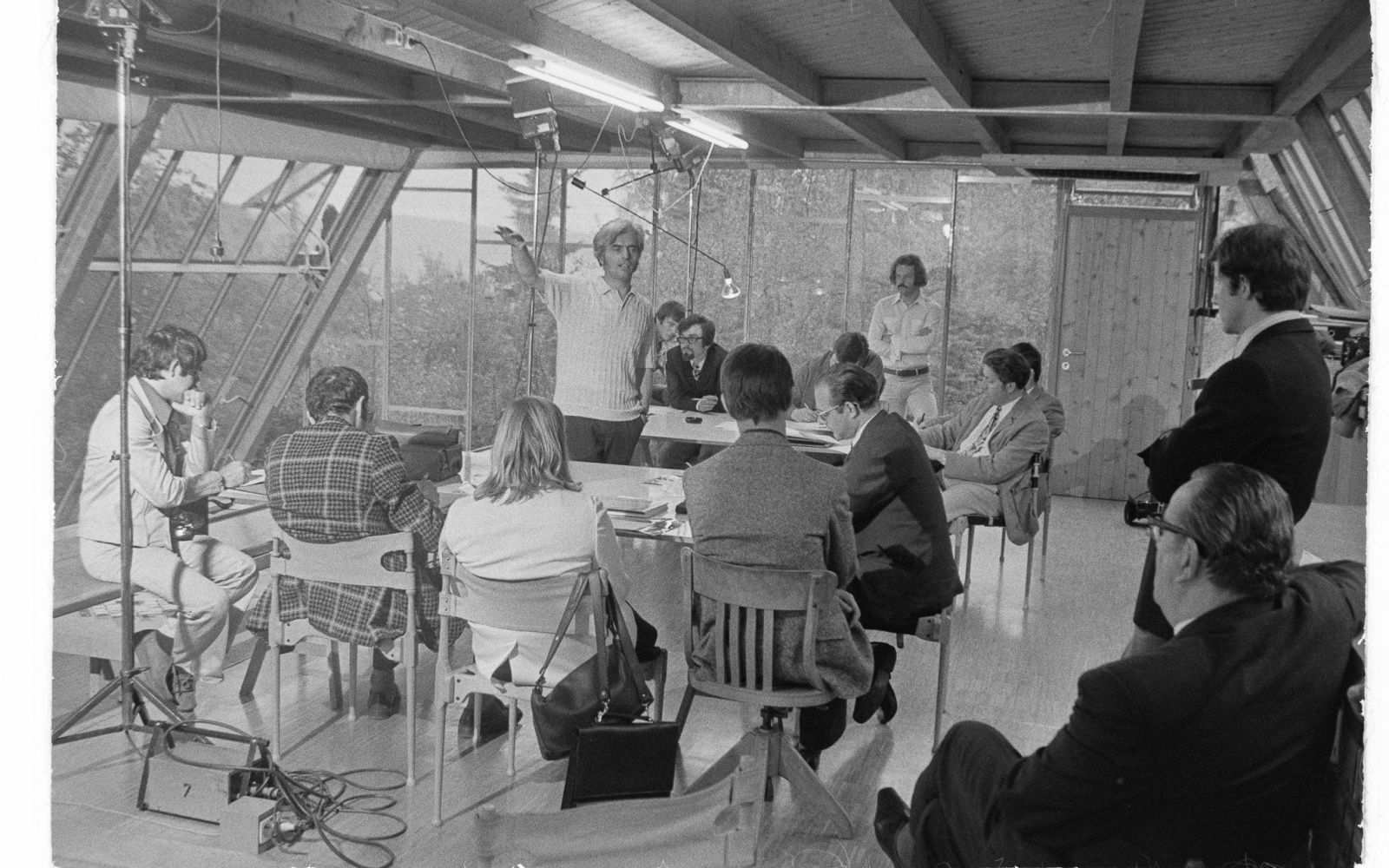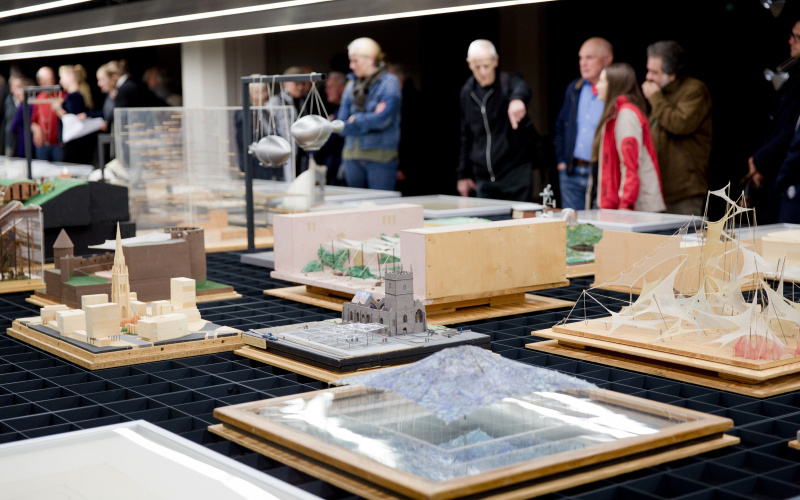- Event
- Symposium
Architecture as a presumed future
Symposium »Frei Otto. Thinking by Modeling«
Thu, January 26 – Fri, January 27, 2017
- Location
- Media Theater
»People say that machines, the tools of development, kill fantasy. That’s not the fault of machines, however, but of man himself, who builds machines that are neither adaptable nor rational: machines that are lacking in fantasy.« Thus wrote the young German architect, Frei Otto, in his concise, manifesto-style essay »Imagination et architecture – essai d’une vision d’avenir«, which was published in the French journal »L’Architecture d’Aujourd’hui« in 1962. Otto illustrated his essay not with photos of realized projects but with watercolor drawings and sketches in Indian ink, in which intriguing membrane roofs and tent-like structures could be seen to span residential developments, landscapes, or even entire self-contained cities. In juxtaposing factors ostensibly worlds apart – the unfettered imagination; constructive or machinic potential – Otto put his finger on what would prove to be a core tenet of his architectural practice: the abiding aspiration to strike an effective and fertile balance between creative vision on the one hand, and the rationale of technological constraints on the other.
Architecture has seen a revival in the importance attached to the study of materials and building components together with the associated workmanship skills and knowledge. This consideration of physical and craftsmanship aspects has also placed a renewed focus on the history of models and its experimental function in architecture, art and science. The question concerning materialization of information is of great significance in this context.
The relevance of Frei Otto’s empirical model aesthetic lies in identifying the enormous potential of object knowledge and its material-cultural dimension – on the one hand to continue to anchor the perception of the resource between nature, technology and society, and on the other to allow better investigation of the complex interrelations between digital and analog. So what does it mean for architects and engineers to design in a society that seeks a balance between growing digitalization and increasingly important resource awareness? For contemporary architecture, the wealth and abundance of Frei Otto’s cosmos bears nothing less than an intellectual thought collective for a different and optimistic narrative of the future environment and human cohabitation.
The symposium »Architecture as a presumed future« takes place within the context of the exhibiton »Frei Otto. Thinking by Modeling« at ZKM | Karlsruhe in cooperation with the discipline architecture theory at the institute design, art and theory at the Karlsruhe Institute of Technology (KIT).
The symposium can also be followed via livestream!
Program
Thursday, January 26, 2017 | |
| 6 pm–6:30 pm | Welcome Words & Introduction (G): Georg Vrachliotis |
| 6:30 pm–8:30 pm | Keynote and Panel Discussion (G): Jan Knippers, Institute of Building Structures and Structural Design, University Stuttgart
Achim Menges, Institute for Computational Design and Construction, University Stuttgart |
Friday, January 27, 2017 | |
| 9:30 am–10 am | Welcome Words & Introduction (G): Georg Vrachliotis |
| 10 am–10:45 am | Lecture (G): Christine Kanstinger, Studio Frei Otto |
| 10:45 am–11:30 am | Lecture (G): Joachim Kleinmanns, Südwestdeutsches Archiv für Architektur und Ingenieurbau (saai) |
| 11:30 am–12 pm | Coffee Break |
| 12 pm–12:45 pm | Lecture (G): Martin Kunz, Südwestdeutsches Archiv für Architektur und Ingenieurbau (saai) |
| 12:45 pm–1:30 pm | Lecture (G): Irene Meissner, Technical University Munich |
| 1:30 pm–2:30 pm | Lunch Break |
| 2:30 pm–3:15 pm | Lecture (G): Nathalie Bredella, Universität der Künste, Berlin |
| 3:15 pm–4 pm | Lecture (G): Cornelia Escher, Konstanz University |
| 4 pm–4:30 pm | Coffee Break |
| 4:30 pm–5:15 pm | Lecture (E): Daniela Fabricius, Princeton University |
| 5:15 pm–6 pm | Lecture (G): Toni Kotnik, Aalto University Helsinki |
| 6 pm–7:30 pm | Keynote (E): Tomás Saraceno, Berlin |
Legend: (G) = Presentation in German, (E) = Presentation in English

